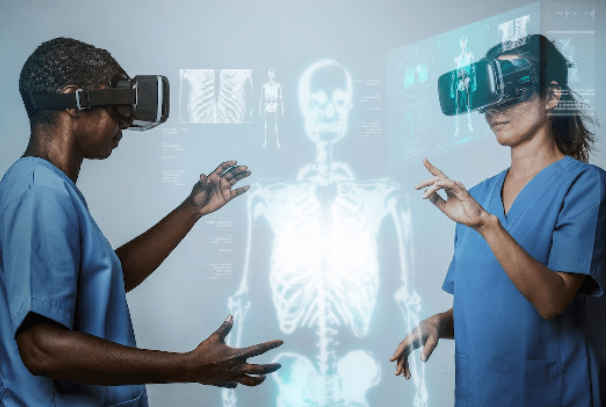The advent of technology has revolutionized many sectors, with healthcare standing out as one of the most significantly impacted areas. From the invention of the stethoscope to the application of artificial intelligence (AI) in diagnosis, the healthcare landscape has witnessed a radical transformation. The aim of this article is to delve into the current year, 2023, examining the profound impact and benefits of technology on healthcare.
Major Technological Advancements
The year 2023 has seen several groundbreaking technological advancements in healthcare. Prominent among these are artificial intelligence, telemedicine, and precision medicine, which have reshaped the way health services are delivered. These innovations not only promise better health outcomes but also challenge traditional healthcare practices.
Transforming Healthcare Practices
The application of AI in patient diagnosis has made a significant difference. Machine learning algorithms are now capable of analyzing complex medical data to identify patterns that humans might miss, increasing diagnostic accuracy and speed. Telemedicine has redefined patient interaction with healthcare professionals, enabling remote consultations and monitoring, especially vital during the global pandemic. Precision medicine, on the other hand, allows treatments tailored to the individual patient’s genetic makeup, maximizing effectiveness while minimizing side effects.
However, these changes have also sparked debates. The use of AI in diagnosis, for instance, raises concerns about data privacy and the human touch in healthcare. Similarly, while telemedicine extends healthcare reach, the quality of care and the digital divide are valid issues. Despite these challenges, the technological revolution in healthcare is an irreversible trend, continually pushing the boundaries of what is possible.
Enhanced Diagnosis and Treatment
One of the most significant advantages of technological advancements is the enhanced speed and accuracy in diagnosis. AI-powered systems can sift through vast amounts of data, identifying subtle patterns and anomalies that could indicate the early stages of a disease. This speed and precision have led to improved patient outcomes and a reduction in healthcare costs. Furthermore, treatments have become more effective and personalized, thanks to precision medicine. By understanding a patient’s genetic makeup, doctors can now design treatments that are highly effective and cause fewer side effects. The introduction of point of care testing has also played a pivotal role in improving patient care. It allows for rapid diagnostic tests at or near the patient site, leading to quicker decision-making and treatment.

Increased Accessibility and Affordability
One of the greatest triumphs of technology in healthcare is the increased accessibility and affordability it provides. Telemedicine has bridged the gap between rural and urban healthcare, offering medical services to remote areas where healthcare facilities are scarce. Digital consultations, electronic health records, and mobile health apps have all empowered patients, giving them greater control over their health and wellness.
Moreover, technology has streamlined healthcare operations and management, reducing costs and increasing efficiency. Electronic health records eliminate paperwork, enhance information accessibility, and reduce errors. AI-powered tools assist in predicting patient flow and managing resources, improving the overall quality of care.
The Future of Technology in Healthcare
Looking forward, the role of technology in healthcare seems to be on an upward trajectory. With advancements in AI, genomics, nanotechnology, and robotics, the future promises even more personalized, efficient, and accessible healthcare.
One emerging trend is the convergence of AI and genomics, which could revolutionize the early detection and treatment of diseases. Robotics, too, holds great potential, from assisting in complex surgeries to improving patient care in hospitals and homes. Meanwhile, nanotechnology could enable targeted drug delivery, reducing side effects and improving treatment effectiveness.
However, these advancements will also bring new challenges. Data privacy concerns, ethical issues around AI and genomics, and the risk of widening health disparities are all valid concerns that need to be addressed as we move forward.
In retrospect, the impact and benefits of technology on healthcare in 2023 have been substantial. Technological innovations have transformed healthcare practices, improved patient outcomes, and increased healthcare accessibility and affordability. However, it’s essential to navigate the challenges these advancements bring along, ensuring a balance between technological progress and ethical considerations.
Looking ahead, the intersection of various technologies promises an exciting future for healthcare. However, it’s equally crucial to address the potential issues that might arise. As we continue to leverage technology in healthcare, the focus should always be on enhancing patient care, improving health outcomes, and making healthcare more accessible and affordable for everyone.

